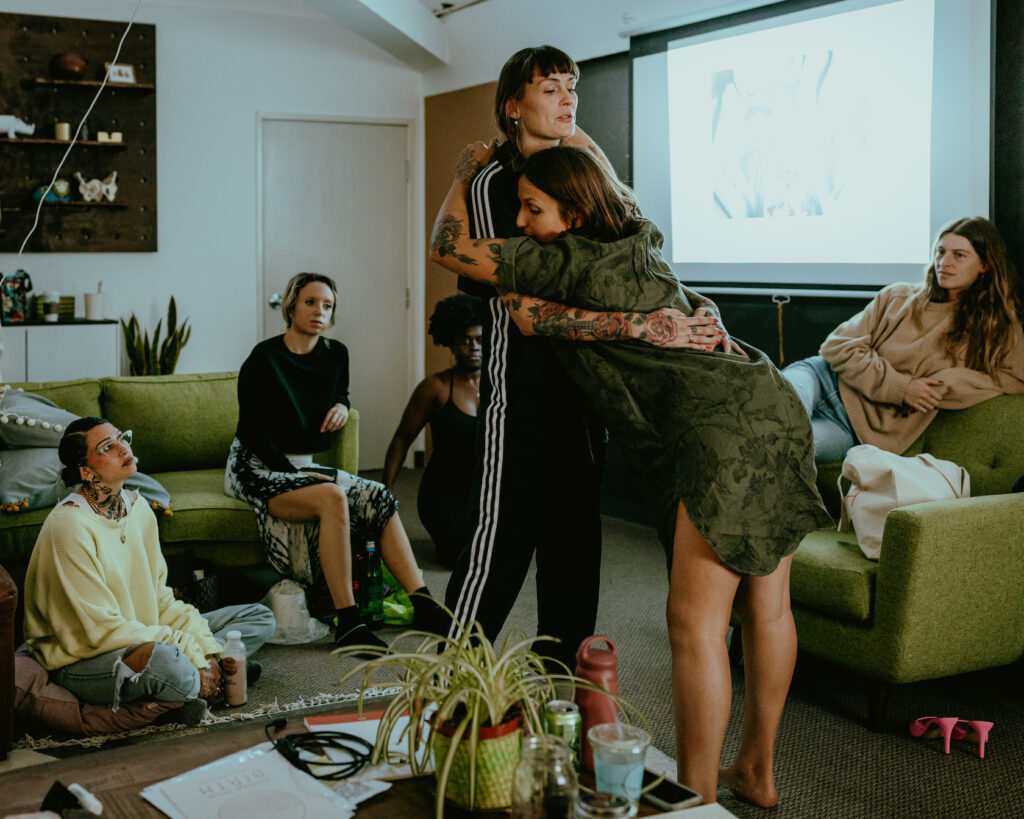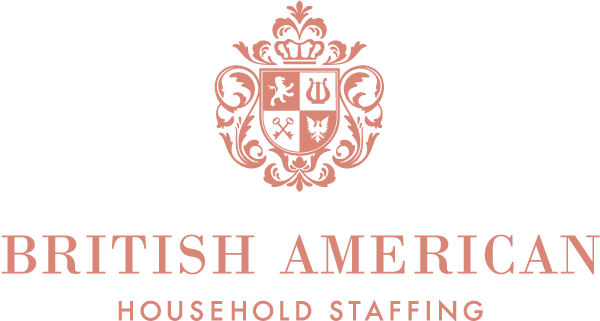
Carriage House Birth: Doula Services
Cover photo by Cristina King
This week, we sat down with the team at Carriage House Birth, a Brooklyn-based pregnancy care and support center. Carriage House Birth matches families with doulas, offers doula training, and offers a range of classes and resources for expecting and new parents. Get in touch with Carriage House Birth here.
What exactly does a doula do, and how do they support families?
A doula provides non-medical, emotional, physical, and informational support to birthing people and their families during pregnancy, birth, and postpartum. At Carriage House Birth, we believe that every birthing person deserves to feel supported and informed throughout their journey. Whether it’s offering guidance during pregnancy, hands-on comfort techniques during labor, or helping a family adjust to life with a newborn, doulas provide continuity of care and unwavering presence in an often-overwhelming process.

What are the benefits of working with a doula during pregnancy, birth, and postpartum?
Studies show that continuous labor support from a doula leads to better birth outcomes, including reduced interventions, shorter labors, and increased satisfaction with the birth experience. During pregnancy, a doula helps families prepare with education and emotional support. During birth, we provide advocacy, physical comfort, and reassurance. Postpartum, we help with newborn care, feeding support, and emotional recovery. At Carriage House Birth, our doulas focus on meeting each family where they are, ensuring they feel empowered and supported every step of the way.
How early in pregnancy should you hire a doula?
You can hire a doula at any point in pregnancy, but we recommend reaching out early in the second trimester to allow time to build a relationship and prepare for birth. At Carriage House Birth, we believe informed decision-making is key, and the earlier we connect with families, the more we can help them shape their birth experience with confidence and clarity.
What type of support does a doula provide during labor?
Doulas provide hands-on physical support, such as counterpressure, massage, and positioning assistance, as well as emotional reassurance and advocacy. We help create a calm and supportive environment, whether in a hospital, birth center, or at home. At Carriage House Birth, our doulas work with each family’s unique needs, ensuring they feel seen, heard, and empowered throughout their labor.

How do doulas work alongside doctors/OBs/Midwives?
Doulas do not replace medical providers; instead, we complement their care by ensuring the birthing person feels informed and supported. We help facilitate communication between the birthing person and their care team, making sure their preferences are understood and respected. At Carriage House Birth, we emphasize collaboration and advocacy, ensuring families feel like active participants in their own birth experience.
What are the main differences between a birth doula and a postpartum/night doula?
A birth doula provides support before and during labor, while a postpartum doula focuses on the recovery period and transition into parenthood. Postpartum doulas offer newborn care, lactation support, emotional guidance, and practical help around the home. Night doulas specifically support overnight needs, allowing parents to rest while ensuring their newborn is cared for. Carriage House Birth offers connections to both birth and postpartum doulas, providing holistic support for families.
How do families find and hire doulas through Carriage House Birth?
Families can connect with our network of experienced doulas through our website or by reaching out for a consultation. We help match families with a doula who aligns with their needs and values, ensuring a strong and supportive relationship.
What is the typical cost of hiring a doula?
Doula fees vary based on experience, location, and level of support. In NYC, birth doula packages typically range from $1,500 to $5,500, while postpartum doula services are often hourly, averaging $45-$75 per hour. At Carriage House Birth, we believe doula support should be accessible, and we encourage families to explore payment plans, HSA/FSA options, and potential reimbursement through insurance or employer benefits.
You offer in-person childbirth education classes in Brooklyn, NY. What type of classes are coming up? What can you expect from taking these classes?
Our upcoming classes include Childbirth Education, Comfort Measures, and Newborn Care & Feeding. These are designed to equip families with practical knowledge, hands-on techniques, and confidence as they approach birth and the postpartum period. Carriage House Birth classes are inclusive, evidence-based, and tailored to meet the needs of diverse birthing experiences.
What are some common misconceptions about working with a doula?
One misconception is that doulas are only for unmedicated births. In reality, doulas support all birth choices, including medicated births, cesarean births, and births with medical interventions. Another myth is that doulas replace partners-on the contrary, we support both the birthing person and their partner, helping them feel more confident in their role. At Carriage House Birth, we emphasize that our goal is to create a team environment where all voices are heard and respected.
What is the process of becoming a doula (type of training, etc.)?
Becoming a doula involves comprehensive training in birth support, postpartum care, and lactation education. Many doulas pursue certification (click here for . Training includes workshops, hands-on experience, and continuing education to develop skills in advocacy, comfort measures, and trauma-informed care.

What does Carriage House Birth’s doula program include?
Carriage House Birth offers two comprehensive doula training programs to meet different learning styles and schedules: a 9-week virtual training and a 4-day in-person intensive.
Our 9-week virtual program, created in collaboration with Woven Bodies and Dorcas Davis Consulting, provides a deep foundation in birth work. Topics include the history of obstetrics and midwifery, anatomy and physiology of birth, high-risk pregnancies, comfort techniques, and postpartum support. We also explore antiracism, LGBTQIA+ inclusivity, and the impact of bias and privilege in birth work. Training sessions help trainees build their doula toolkit and business.
Our 4-day in-person intensive covers the same core foundations in a hands-on, immersive setting, offering real-time engagement with experienced mentors and fellow trainees.
Both programs are designed to be accessible and inclusive, ensuring that anyone called to this work has the opportunity to step into it with confidence.
DOULA MATCHING – Learn more about finding a doula
DOULA TRAINING: Learn more about becoming a doula
Related Blog Posts
Ask Sarah Rueven: Hormones, Fertility, Nutrition & More
How to Hire a Nanny: What to Know and How a Nanny Agency Can Help
